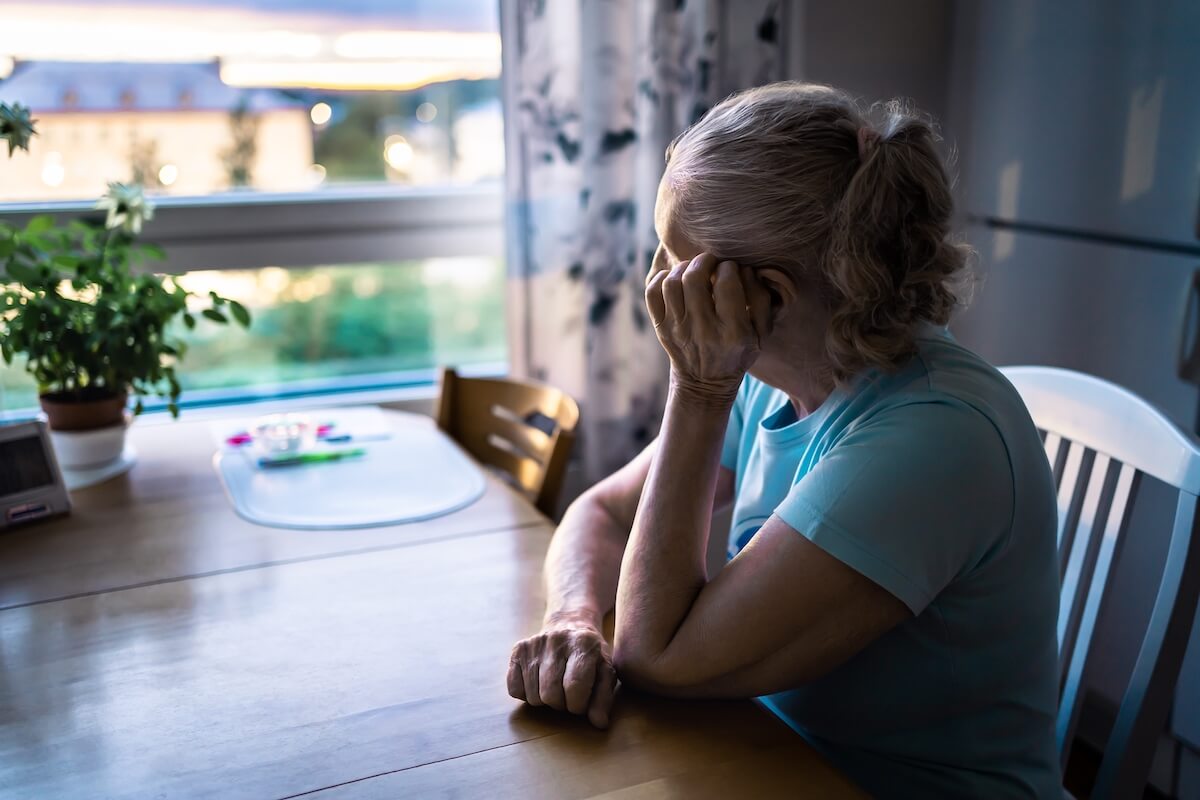October 1, 2024

Aging is a beautiful and natural part of life, but it isn’t without its challenges. One common concern among older adults is anxiety. The question that often arises is, “Is it normal to have anxiety as you age?“
With senior living communities in Illinois, Ohio and Indiana, our team at Franciscan Ministries is shedding light on this often stigmatized topic by exploring what anxiety is, how it manifests and ways to cope with it. We believe that a clear understanding of anxiety will prepare individuals to manage it more efficiently, improving their overall well-being.
Anxiety is a natural human response to stress or perceived danger and often manifests as feelings of worry, nervousness, or fear. While it’s normal to experience occasional anxiety, chronic anxiety can interfere with everyday life, contributing to more serious health issues, such as high blood pressure and weakened immune function. Different types of anxiety disorders include generalized anxiety disorder (GAD), panic disorder, social anxiety disorder and specific phobias.
Anxiety doesn’t just affect the mind—it has physical repercussions as well. When you’re anxious, your body releases stress hormones like adrenaline and cortisol. Physically, this can manifest through an increased heart rate, sweating, trembling and muscle tension. Mentally, anxiety can lead to difficulty concentrating, restlessness and irritability.
Engaging in regular physical activity is one of the most effective ways to combat anxiety. Exercise releases endorphins, the body’s natural mood boosters, which can significantly elevate your mood and reduce feelings of anxiety. Whether it’s a brisk walk, a dance class or a gym workout, finding an activity you enjoy can make it easier to incorporate into your routine.
Mindfulness practices, such as meditation and deep-breathing exercises, are excellent for calming the mind. These techniques allow you to focus on the present moment, helping to alleviate stress and anxiety. By dedicating just a few minutes each day to mindfulness, you can train your brain to respond more calmly to anxious thoughts and situations.
Maintaining connections with family, friends and your community plays a vital role in managing anxiety. Social support provides a sense of belonging and can help combat feelings of loneliness and isolation. Don’t hesitate to reach out to loved ones when you’re feeling anxious. Sharing your feelings can often lighten the emotional load.
Finding joy and relaxation through hobbies can serve as a powerful distraction from anxiety. Whether it’s painting, gardening, writing or playing music, engaging in activities that you love can enhance your mental well-being. Hobbies not only provide a sense of accomplishment but also offer a creative outlet that can alleviate stress.
Seeking help from therapists or counselors specializing in anxiety can provide personalized strategies tailored to your needs. These professionals can guide you through various therapeutic techniques and help you develop coping strategies that work best for you.
Throughout our Catholic senior living communities in Illinois, Ohio and Indiana, we understand the importance of mental health and cognitive wellness. We offer a range of programs designed to promote well-being and reduce anxiety. Our wellness programs, including exercise classes and mindfulness sessions, are tailored to meet the needs of older adults and help them manage anxiety effectively. Our team members provide personalized care and support, ensuring that each resident feels valued and understood.
Remember, it is normal to have anxiety as you age, but it doesn’t have to define your retirement years. If you or a loved one is facing anxiety or looking for a community of support, don’t hesitate to contact our Franciscan Ministries team. Together, we can find calm and joy in the retirement years.